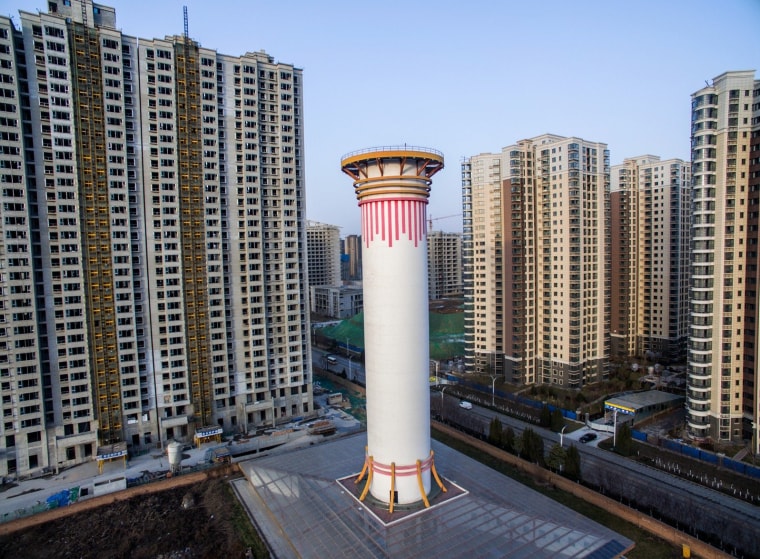What Are Smog Towers?
Written by Amrita Prakash, a grade 7 student
Written by Amrita Prakash, a grade 7 student
Delhi has been called a “gas chamber” many times, in reference to its toxic air pollution.
Last year the Supreme Court sternly told the Delhi government, as we;; as the Central Pollution Control Board (CPCB) to make a plan to reduce pollution. Part of this was to set up something called smog towers. The Indian Institute of Technology, Bombay made a plan to do this.
In January this year, the Supreme Court ordered that two towers should be put up in Delhi by April. It didn’t happen. IIT Bombay tried to get out of the project, but the Supreme Court didn’t allow it.
What is a ‘smog tower’?
A smog tower is basically a really big air purifier (about 20 meters tall). It works pretty much the same way – it has many layers of filters that trap fine dust particles, making the air around it cleaner.
The way it works is that it takes in air from all sides, which passes through highly effective H14 grade Highly Effective Particulate Arrestance (HEPA) filters, and then it throws it out – generating 1,300,000 cubic metres of clean air per hour. It will have 48 fans to keep the flow of clean air going and could provide clean air to 75,000 people living in the 3 kilometer radius around it.
The cost of one smog tower will be around Rs. 10 to 12 crore.
Do they work?
There are mixed reviews about whether this will work or not. Some other countries have also installed these – including China, Poland, South Korea, and the Netherlands. The one in China is 100-metre high and is said to be the world’s biggest air purifier.

Experts say that the towers will create “clean air zones” in the capital. It is estimated that smog towers would reduce 50% of the fine dust particles in an area of 1 kilometre in the direction of the wind, and 200 metres each along the sides of the tower and against the direction of the wind.
So, the obvious question to ask is – how many will Delhi need?
A lot. Some experts say Delhi would need more than 200!



Comments